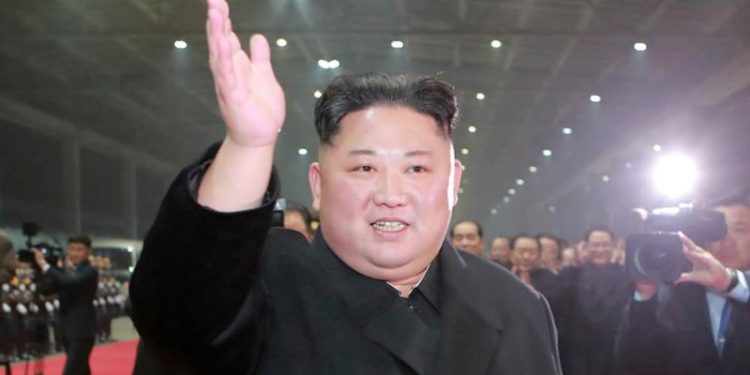Pyongyang: North Koreans go to the polls Sunday for an election in which there can be only one winner.
Leader Kim Jong Un’s ruling Workers’ Party has an iron grip on the Democratic People’s Republic of Korea, as the isolated, nuclear-armed country is officially known.
But every five years it holds an election for the rubber stamp legislature, known as the Supreme People’s Assembly.
And in keeping with one of Pyongyang’s most enduring slogans – ‘Single-minded unity’ — there is only one approved name on each of the ballot papers.
Voters have the opportunity to cross it out before casting their ballot, but in practice that is unknown.
Turnout last time was 99.97 per cent, according to the official KCNA news agency — only those who were abroad or ‘working in oceans’ did not take part. And the vote was 100 per cent in favour of the named candidates.
“We regard all the people in our country as one family so we will unite with one mind and we will vote for the agreed candidate,” Socialist Women’s Union official Song Yang Ran, 57, said.
With a total absence of electoral competition, analysts say the vote is held largely as a political rite to enable the authorities to claim a mandate from the people.
It was the result of “established institutional inertia and a need to legitimise the government by simulating democratic procedure”, said Andrei Lankov of Korea Risk Group.
Soviet-style Communist states had a long tradition of holding general elections, he said, even if the ruling party ignored its own rules about holding regular congresses — something the North skipped for more than 30 years.
“The early Communists sincerely believed that they were producing a democracy the world had never seen. So they needed elections and it became a very important part of self-legitimisation,” said Lankov.
The last significant government of a major country to dispense with elections altogether was Nazi Germany, he pointed out.
The North is divided into constituencies for the vote — there were 686 at the last election in 2014, when Kim stood in Mount Paektu, a dormant volcano on the border with China revered as the spiritual birthplace of the Korean people.
He received a 100 per cent turnout and 100 per cent in favour according to KCNA.
AFP






































